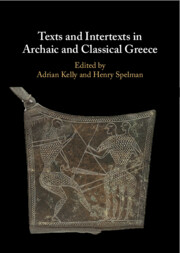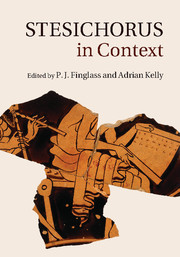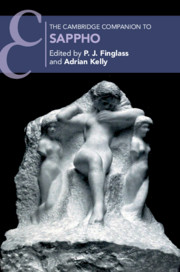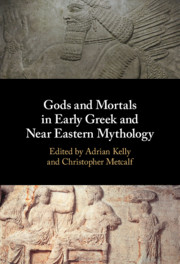Texts and Intertexts in Archaic and Classical Greece
AUD$201.95 inc GST
- Editors:
- Adrian Kelly, University of Oxford
- Henry Spelman, University of Cambridge
- Publication planned for: November 2024
- availability: Not yet published - available from November 2024
- format: Hardback
- isbn: 9781108840118
AUD$
201.95
inc GST
Hardback
Looking for an inspection copy?
Please email [email protected] to enquire about an inspection copy of this book
-
Encompassing the period from the earliest archaic epics down through classical Athenian drama, this is the first concerted, step-by-step examination of the development of allusive poetics in the early Greek world. Recent decades have seen a marked rise in intertextual approaches to early Greek literature; as scholars increasingly agree on the need to read these texts in a comparative way, this only makes all the more urgent the question of how best to do so. This volume brings together divergent scholarly voices to explore the state of the field and to point the way forward. All twelve chapters address themselves to a core set of fundamental questions: how do texts generate meaning by referring to other texts and how do the poetics of allusivity change over time and differ across genres? The result is a holistic study of a key dimension of literary experience.
Read more- Covers all major authors and genres from the dawn of extant literary texts through the classical era, allowing readers to gain a diachronic sense of how the poetics of allusivity developed over time
- Enables readers to apprehend the current state of scholarship by presenting a variety of theoretical and practical approaches to core issues
- Combines literary and historical perspectives to allow readers to perceive how the varied relationships between texts evolve over time
Customer reviews
Not yet reviewed
Be the first to review
Review was not posted due to profanity
×Product details
- Publication planned for: November 2024
- format: Hardback
- isbn: 9781108840118
- length: 348 pages
- dimensions: 244 x 170 mm
- availability: Not yet published - available from November 2024
Table of Contents
Introduction Adrian Kelly and Henry Spelman
Part I. Early Intertextuality:
1. From the Odyssey to the Iliad, and round (and round) again Adrian Kelly
2. The wisdom of Archilochus: Didactic Intertexts in early Greek poetry Laura Swift
3. Intertextual effects in early epigram Oliver Thomas
Part II. Lyric and Epic:
4. Sappho's intertextual geographies Barbara Graziosi
5. Invoking Homer: the Catalogue of Ships and the early reception of the Iliad Henry Spelman
6. Pindar, Bacchylides, Archaic Epic and Intertextuality Andrew Morrison
Part ΙΙΙ. Drama:
7. Intertextuality, 'cf.' and fragmentary drama Matthew Wright
8. Satyr drama and the limits of the possible: Sophocles' Judgement and the Cypria Lyndsay Coo
9. A cave with two doors Richard Hunter and Rebecca Lämmle
Part ΙV. Conceptual Contexts:
10. Talk and text: the pre-Alexandrian footnote from Homer to Theodectes Thomas Nelson
11. How, and why, the Athenians painted different myths at different times Robin Osborne
12. Framing intertextuality in early Greek prose Ilaria Andolfi.
Sorry, this resource is locked
Please register or sign in to request access. If you are having problems accessing these resources please email [email protected]
Register Sign in» Proceed
You are now leaving the Cambridge University Press website. Your eBook purchase and download will be completed by our partner www.ebooks.com. Please see the permission section of the www.ebooks.com catalogue page for details of the print & copy limits on our eBooks.
Continue ×Are you sure you want to delete your account?
This cannot be undone.
Thank you for your feedback which will help us improve our service.
If you requested a response, we will make sure to get back to you shortly.
×



